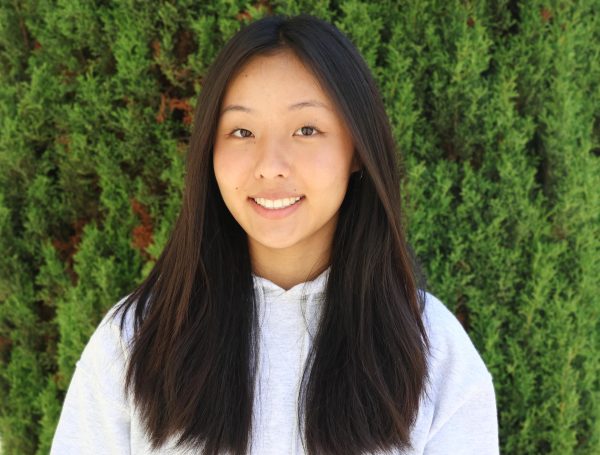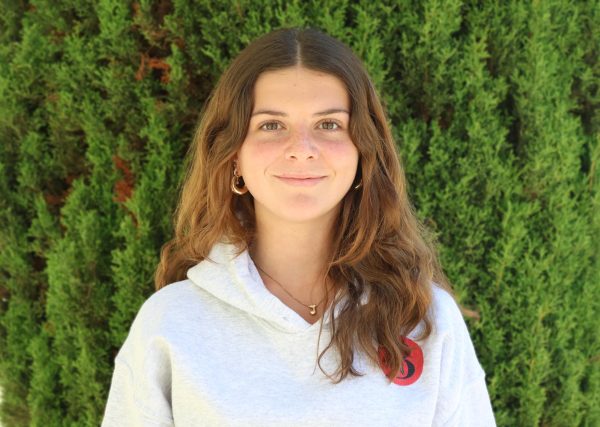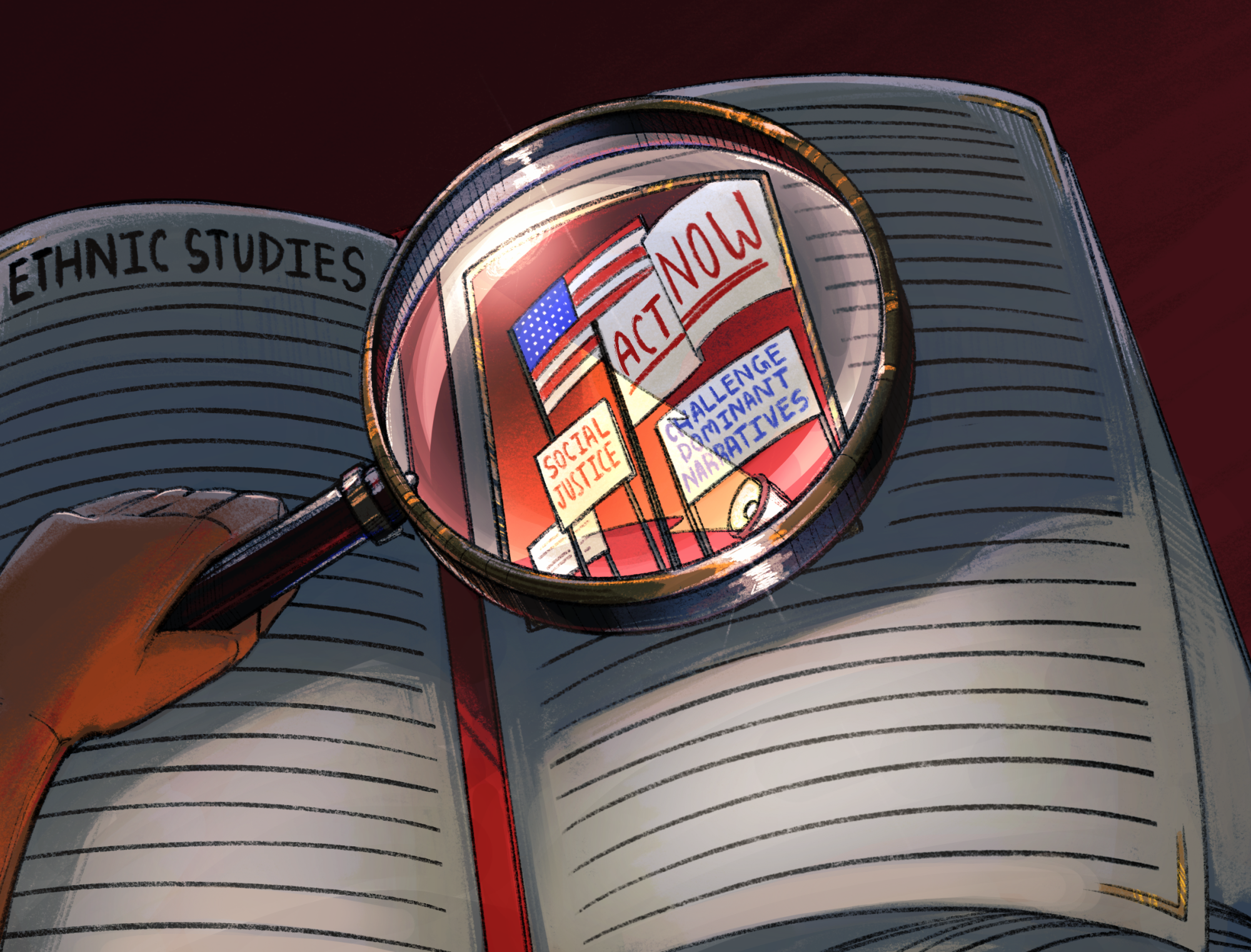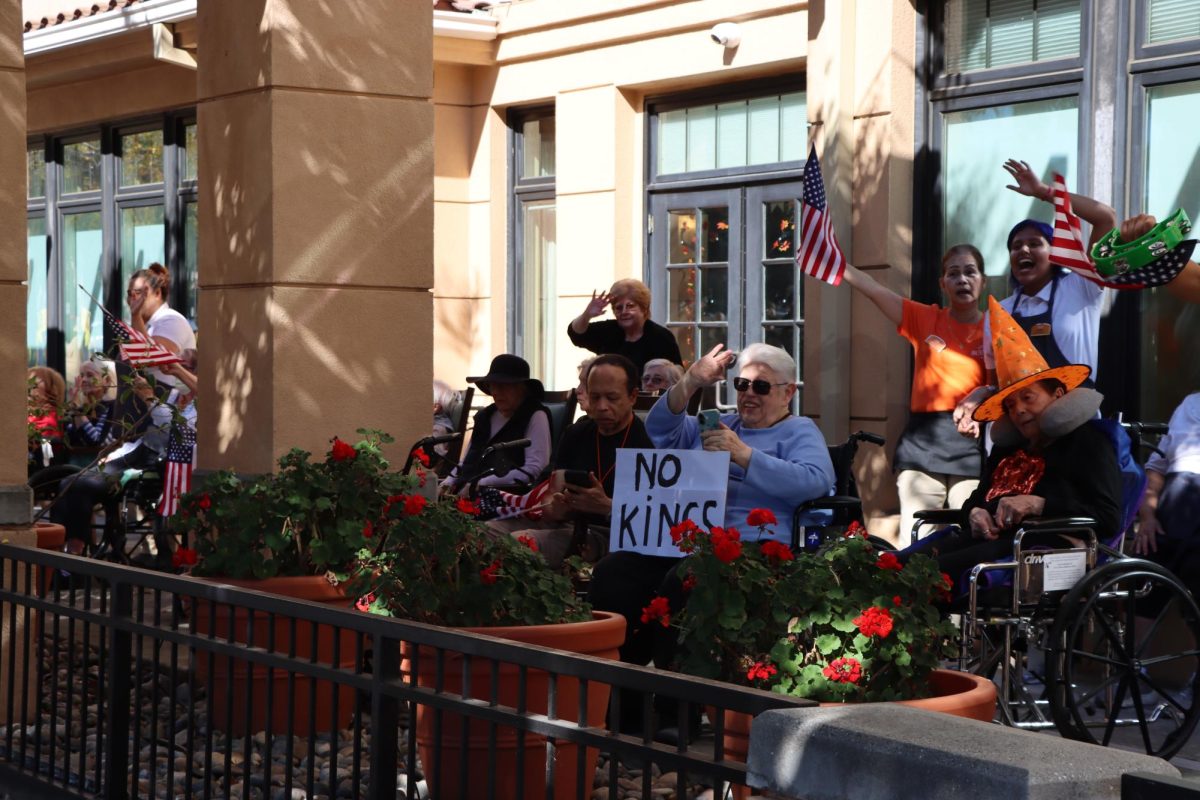Ethnic Studies sparks debates at district and state level
During the California Forum on Ethnic Studies in Public Schools — a public forum held on Feb. 25 — parents, educators, and public officials across the state were invited to share their thoughts and perspectives on the ethnic studies curriculum. The online event was hosted by the Israeli-American Civic Action Network, an organization dedicated to strengthening the United States-Israel alliance, and featured a discussion on the alleged lack of transparency, the role of critical race theory, and the potential ideological bias in the ethnic studies course.
Jennifer Jacobson, a clerk and trustee of the San Mateo Union High School District (SMUHSD) Board, participated in the forum. Identifying herself as both a parent and a trustee, Jacobson spoke about her child’s negative experience in the course and raised several concerns, including the course’s placement in ninth grade, the incorporation of ethnic studies themes into history classes, and the belief that it “transforms students into activists.” She also encouraged parents in SMUHSD and other districts to file lawsuits against school boards to “bring light to problematic content or interactions.”
“I’m not seeking to make ethnic studies go away… That’s not a pragmatic approach, even if I wanted to,” Jacobson said in an interview. “But what I can do is raise these questions about how we can make it better, raise these concerns that are substantive, and [think about] how can we address those concerns.”
Craig Childress, president of the SMUHSD Teachers Association, said in an interview that he was primarily concerned about the nature of Jacobson’s comments as a trustee. Childress sent a message to the board, warning that Jacobson’s actions could potentially divert funding from the district and reflected a “call for action against the SMUHSD community.” To address the situation, he encouraged the board to censure Jacobson.
“My concern is based on the general tenets of what a trustee’s duty is, which is to support and defend public education, to hold the education and achievement of students as the highest priority, to act as a collaborative member of a school board, and not to suggest that the best way to interact and to address concerns [is] to file complaints, file lawsuits, and take action that might threaten harm to the district,” Childress said.
In the weeks following the public forum, Childress, Jacobson, and community members had the opportunity to share their perspectives and clarify misunderstandings during board meetings on Feb. 27 and March 12.
During the March 12 board meeting, Childress reiterated that he “respect[s] trustee Jacobson’s right to free speech,” but her comments were “unbecoming of a trustee.” He pointed to the California School Boards Association guidelines, which state that board members have the responsibility to speak out on behalf of children but must act “with a professional demeanor that models the district’s beliefs and vision.”
Later in the meeting, Jacobson addressed Childress’s concerns about the implications of her actions as a board member, stating that her “intent is not and never has been to encourage actions that drain district resources or harm students.”
According to an unofficial board statement from President of the SMUHSD Board of Trustees Robert Griffin, the board has not released any statements as of March 31, and there have been no formal requests for action to censure Jacobson.
In the fall of 2018, the introductory ethnic studies course was first offered — as either an optional elective or a replacement class, depending on the school — at Capuchino, Hillsdale, San Mateo, and Peninsula High School to pilot the curriculum. Based on positive student responses in an end-of-year survey, the SMUHSD Board of Trustees agreed to make ethnic studies a ninth-grade course requirement starting in 2020. A year later, Governor Gavin Newsom signed bill AB-101, making the class a statewide graduation requirement starting in the 2025-2026 school year.
The origins of ethnic studies date back to the 1960s, when a coalition of students from the Third World Liberation Front at San Francisco State University organized a strike. The students demanded that the college curriculum represent their histories as people of color in the United States. From there, ethnic studies evolved into a statewide academic field aimed at understanding the histories of marginalized groups.
A teacher, who requested anonymity due to public backlash, said that the purpose of the course — to share the experiences of student demographics — gives it a representative nature. For this reason, state law leaves school districts the freedom to develop their own curriculum but encourages them to follow the guidelines of the Ethnic Studies Model Curriculum.
“In San Mateo Union High School District, we have the teachers who teach ethnic studies come together to design the curriculum collaboratively,” Assistant Superintendent of Curriculum and Instruction Julia Kempkey said. “So it’s a San Mateo Union High School District-specific curriculum that we use.”
Given that the curriculum is flexible between districts, ethnic studies can sometimes be a source of controversy. For example, several readers wrote letters to the editor in response to the San Mateo Daily Journal’s article on Childress’s suggestion to censure Jacobson. One letter, written by Holly Rothkopf, said that “there is a lot of confusion about what schools are teaching and which curriculum guides they are using for the ethnic studies course.”
In SMUHSD, recent concerns over ethnic studies have resulted in Public Records Act requests. As schools are considered a public entity, members of the community can request access to records and copies of the ethnic studies curriculum.
“[SMUHSD ethnic studies teachers] are following the legal requirement of providing the material because curriculum is considered a public record,” Kempkey said. “I think it’s unsettling and unnerving for teachers to have this level of scrutiny on the work that they’re doing. They are proud of the work that they’re doing in the course… I can’t speak for them because I am not one of the teachers, but it is unsettling from what I’ve heard.”
At the state level, several school districts are navigating lawsuits, primarily focused on the alleged bias and antisemitism in their respective curricula. In Sept. 2023, the Brandeis Center, the Anti-Defamation League, and the American Jewish Committee filed a lawsuit against the Santa Ana Unified School District (SAUSD), claiming that their ethnic studies course was developed in secret and included antisemitic content. The Superior Court of the State of California for the County of Orange settled Brandeis v. SAUSD on Feb. 19, deciding to discontinue three of their ethnic studies courses and revise them with transparency.
Across California, the future of ethnic studies remains uncertain. According to the Governor’s Proposed Budget released on Jan. 10, funding was not allocated for the ethnic studies course in California for the next fiscal year. Teachers currently await the May revision to gain funding for ethnic studies in the 2025-26 school year.
In light of ongoing debates, Assemblymembers Rick Chavez Zbur and Dawn Addis proposed Assembly Bill 1468 in February to standardize the ethnic studies curriculum. The bill requires the California State Board of Education to establish content standards and provide instructional materials so educators can teach with a more structured framework.
“From what I understand, this [bill] just requires there to be further transparency on what the course is,” Kempkey said. “… the idea that the course shouldn’t reflect or promote any kind of bias, bigotry, or discrimination is certainly something that we absolutely agree with, that the course should be promoting collaboration and understanding among all students.”
For the past four years, Burlingame has offered a mandatory ethnic studies course to all freshmen. Since its implementation, students have come away with varying experiences and opinions about the course.
For freshman Chloe Chen, who is currently taking the course, ethnic studies provides a deeper understanding of both herself and the world around her. Chen particularly enjoyed the Zine project, where students explored race more creatively through an artistic medium.
“I got to explore more of my own identity and how the government system or different systems are created to advantage some groups and disadvantage some groups,” Chen said. “And it’s up to us to see whether or not we surpass the expectation and carve our own path regardless of race.”
Junior Rohan Shah values the class as well, but he also understands its broader concerns. While he acknowledges that the course can overlook the experiences of certain groups, Shah recognizes the challenges of representing all narratives within the constraints of a semester-long course.
“I agree that [ethnic studies] is exclusive, but also it’s impossible to cover all minorities since it’s a semester-long course,” Shah said. “So I think what they do cover, especially since we do live in America, is the most relevant because they cover a lot of what Native Americans have been through and African Americans, [who] have been a huge part of American culture and society. So while I would like to see other minorities included, I don’t think it’s really possible unless they extended the course to at least a year.”
In addition to the ninth-grade introductory course, several schools in the district — including Hillsdale, Capuchino, and Burlingame — offer an advanced ethnic studies course as either a year-round or single-semester elective for upperclassmen. Burlingame added the advanced course in 2024, which expands on the freshman curriculum while exploring more current and relevant topics.
Senior Jayden Wan is currently taking the advanced course and believes both classes provide students with perspectives and narratives that are essential to understanding United States history.
“When you take ethnic studies as a ninth grader, you may have some pre-existing perceptions of historical events,” Wan said. “And I would say that ethnic studies often supplements those understandings with something new, something that you didn’t know before.”
However, some offer different interpretations of the nature of ethnic studies and its impact on students. Chen said that the class is “up to your own understanding, and interpretation of what you find is up to yourself,” while Wan said that the course is “about activism and being an advocate.”
While Wan, Shah, and Chen each maintain unique experiences in ethnic studies, they all agree that the core message of the course — to acknowledge all narratives and perspectives in history — is a crucial skill for all high school students.
“[There is a] cost of not acknowledging the more negative sides of history, because those realities are true,” Wan said. “I think by overlooking them, we lose out on some opportunity to do self-reflection on ourselves and our community.”
Read more of our coverage on ethnic studies since 2019:
Your donation will support the student journalists of Burlingame High School - CA. Your contribution will allow us to purchase equipment and cover our annual website hosting costs.













